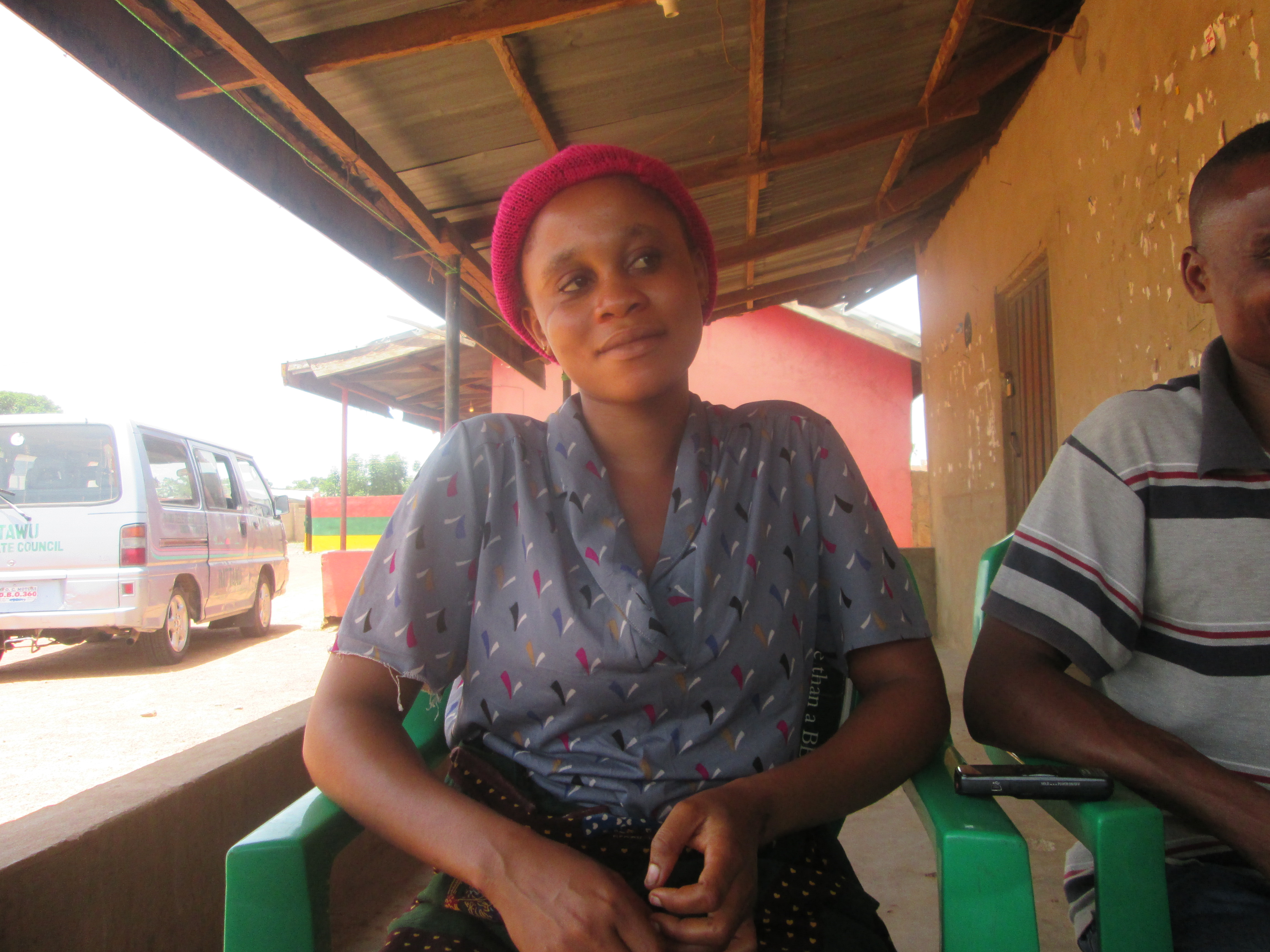Since 2009, Nigerian soldiers have been going into battle with Boko Haram — with far inferior arms and ammunition — knowing this is the only proof of their love for fatherland. But once they sustain injuries on the battlefield, they soon discover that this love is unreciprocated. ‘Forgotten Soldiers’ is a five-part series exploring the agony of soldiers shattered by Boko Haram’s bullets and mines, and what their pains mean for their loved ones.
It’s about midday in mid-May at the 7 Division Medical Services and Hospital, Maiduguri, Borno state. Visitors to the ward for severely injured soldiers are welcomed by the soothing lyrics of Max Lucado’s My Heart Will Trust.
Though I walk through valleys low
I’ll fear no evil
Advertisement
By the waters still my soul
My heart will trust in you
Advertisement
This is no routine song; it is a song for trying times, for seeking consolation during hardships, maybe also for battling depression.
It is no coincidence, too, that the music is buzzing from the HP laptop and portable woofer of a soldier shot in the thigh by Boko Haram. Recuperating in conditions utterly undermining the gravity of his sacrifice to fatherland, the soldier reckons his hospital stay is a “walk through the valleys low”; he is left with no choice but to let his “heart trust in God”.
Make no mistake: a soldier hit by the enemy’s bullets while defending his country’s territorial integrity has no business trusting in God alone; he should be trusting in his country — in the government, in the army and in the people in whose interest he headed to the battlefront. A cheery soldier, he has no qualms exchanging banters with a stranger, and even offers to transfer the song to him.
Bad combo: Gunshot wound plus heat stress
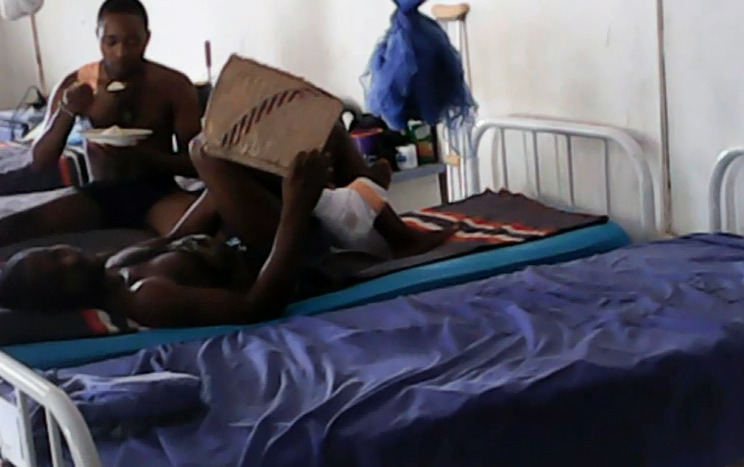
A few beds away, another soldier is fanning his gunshot wound with a handheld mat made of raffia fronds. Yes, with a local mat! There is power outage and the ward is fusty. There is also a standby generator; just that all it does in periods of power outage is to stand by… because the hospital authorities hardly fuel it.
Advertisement
While those soldiers who are slightly heat-tolerant are content with just furling the blinds to reduce airlessness in the ward, others have self-purchased rechargeable standing fans. One way or the other, each soldier has devised an ingenious way of keeping himself and his wound aerated, proving that this incident of power outage without the cushion of generator is anything but a one-off.
One soldier soon politely asks a visitor to switch on the television by the entrance. The visitor kindly obliges. As the air conditioner is also close by, the visitor asks if he should switch it on as well.
“That one?” the soldier replies. “No. It’s not working; it’s merely there for decoration.”
A soldier sits by his rechargeable fan, which he bought to circumvent constant blackout in the hospital
Advertisement
The ward itself is ordinary. Take away the patients’ beds and tiled floor, and what is left is a nondescript room only slightly better than a manger. It is doesn’t look a shade like a befitting recuperation centre where any serious country keeps its heroes.
At the 7 Division Hospital, no soldier exhibits the willingness to speak with a reporter; it is understandable. Located inside the Maimalari Barracks, Maiduguri, this hospital is the first drop-off zone for soldiers injured by Boko Haram. Most of the injuries here are fresh, ranging from a few days to a few months. Their frustrations are at their earliest stages, so it is logical that they are unwilling to talk just yet.
Advertisement
However, at the 44 Nigerian Army Reference Hospital, Kaduna, where injuries are stale, ranging from many months to a few years, it is much harder for the soldiers to hide their plight. Their sufferings, therefore, are noticeably easier for a fact-finding journalist to dig up.
Like 7 Div, like 44 Hospital
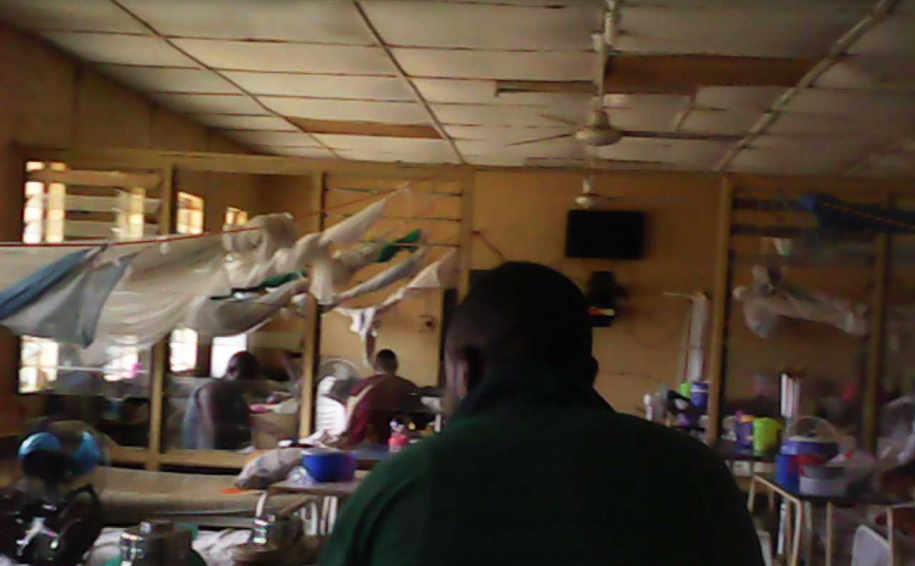
It is a familiar welcome to the 44 Hospital in Kaduna: electricity outage, poor ventilation, heat stress, furled blinds, hurting soldiers. Why, for heaven’s sake, should soldiers be nursing their injuries in this kind of heat?
Advertisement
“There is a big generator over there,” an annoyed soldier tells no one in particular. “See the kain heat wey person dey suffer. There is a “big generator” but dem no go put fuel.”
It is not a particularly spic-and-span ward. Hanging loosely over the beds are dingy mosquito nets, held together by straps fastened to the supposedly butter-colour but pale walls. It will be a miracle if the ceilings aren’t leaking, as cracks in the asbestos are palpable from afar. Overall, it’s a far-from-dignifying setting.
Advertisement
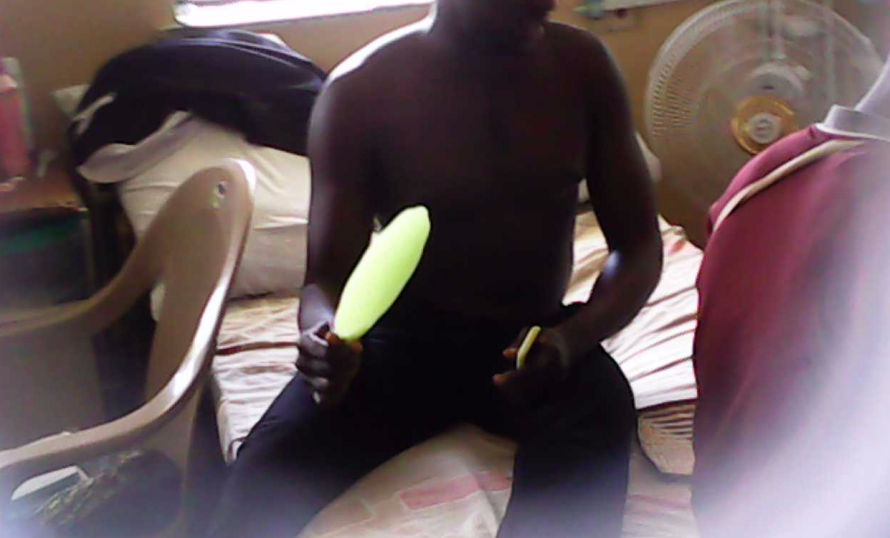
Food without fish, meat
Soon, it is lunchtime. A soldier jokes that this “good yam porridge” is what they feed on to “refresh and freshen up”. It is a banter the server is pleased to accept, remarking: “We want you to heal very well.”
Any wonder what kind of porridge Nigeria’s heroes, fresh from surgeries, are eating? It’s an all-starch affair — yam served without fish or meat, or any other protein supplement!
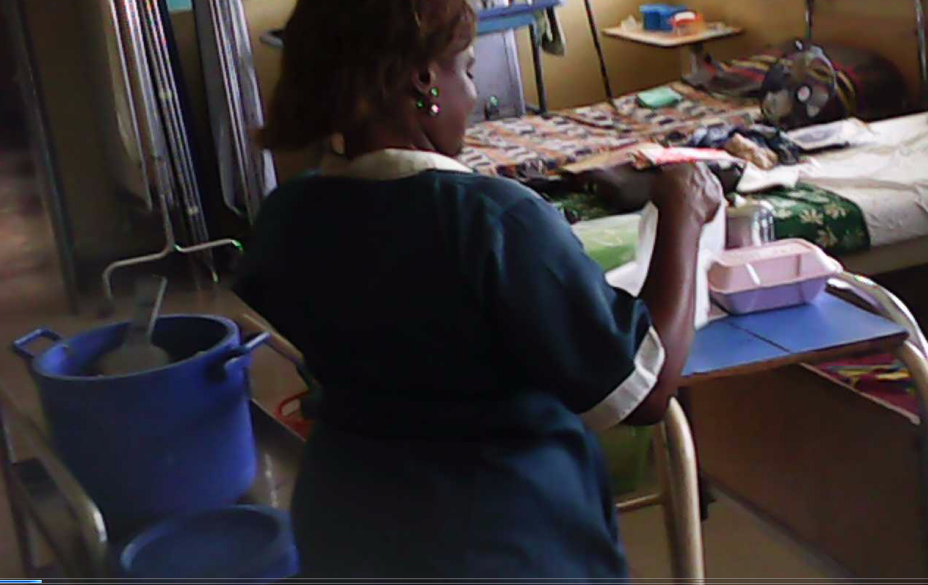
This is in spite of research identifying vitamins and minerals, which are available in fish and meat, as “perhaps the most important nutrients“ in a patient’s post-surgery diet.
In particular, Vitamin E (found in vegetable oils, nuts, beef liver, milk and eggs) protects the body from free radicals, while Vitamin K (found in green leafy veggies, fish, liver and vegetable oils) is necessary for blood clotting. Ask not if the porridge contained vegetables or milk or eggs!
Zinc (found in meat, seafood, dairy and beans) and iron (found in meat and poultry, beans, apricots, eggs, whole grains and iron-fortified cereals) are also helpful for wound healing and energy following surgery.
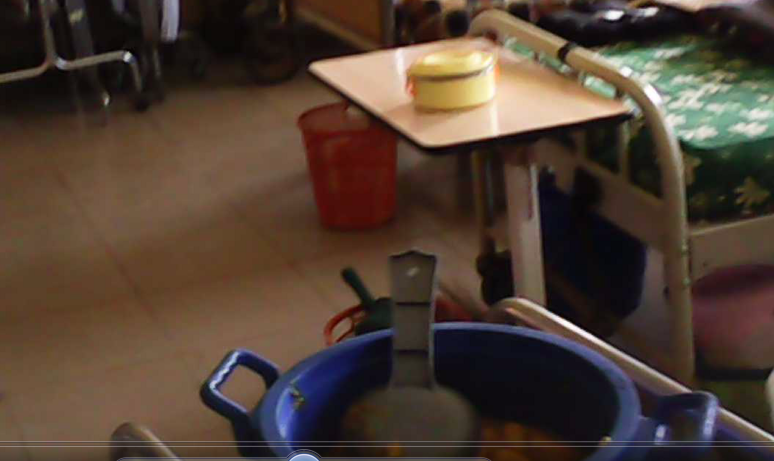
Disturbing as these discoveries are, they are purely superficial issues.
At an adjoining ward, there is a one-eyed soldier who is at the mercy of the authorities. Blinded in the right eye by fragments of a rocket-propelled grenade (RPG) fired by Boko Haram on the battlefield, the soldier (name unknown because it wasn’t an interview but a conversation obtained undercover) is awaiting referral to a better hospital abroad.
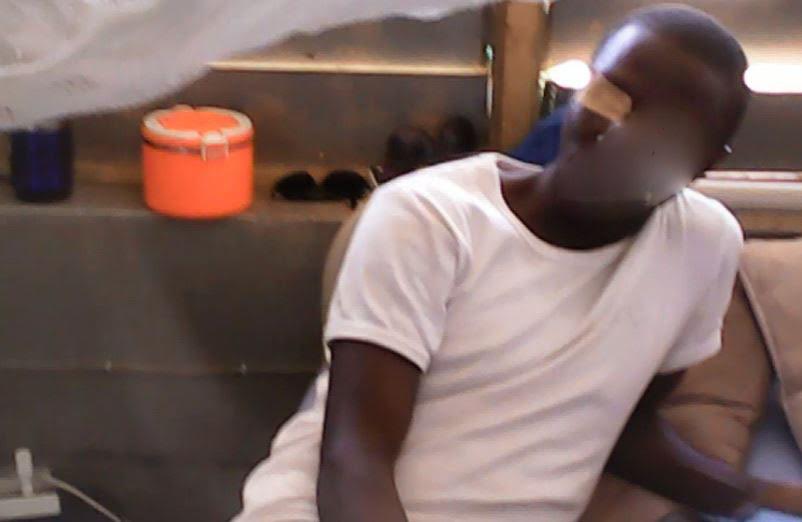
And while he awaits that referral, the problematic eye remains plastered, while two Play Station keypads and his laptop (out of power again!) offer him escapism from his anguish and the anxious wait for medical solution.
A soldier who had been discharged several weeks earlier and was only returning to the hospital for an appointment with the doctor asked the one with the eye injury why his case had still been unattended to.
“You’re still here?” the concerned, surprised soldier asks in pidgin. “When I travelled, I thought your case would have been sorted before my return.”
“For where?” the victim replies, also in pidgin. “They said my case cannot be handled here. They will have to refer me elsewhere, but I don’t know where.”
For more than one week, this soldier had been awaiting referral to another hospital. One-and-a-half weeks of awaiting transfer to a more competent hospital! That itself must have been a frustrating experience for him, but what is unbelievable is that this is an injury he has been carrying since April 2014.
At some point, he was referred to a hospital in Lagos; it didn’t work. Abuja has been mulled as well, but it hasn’t happened. As it is, he is currently wasting away in Kaduna, as one of the many victims of needless bureaucracy and corruption in the army.
A few soldiers also offered to speak on the deeper issues — anonymously, though.
Bone-setters better than military hospitals?
Corroborating soldiers’ complaint about their treatment, a member of the Armed Forces Special Force (AFSF) shares the story of an injured colleague who was forced to leave the military hospital to seek care from traditional bone-setters, following a mine explosion.
On May 30, 2015, nine AFSF guys were travelling along Banki, where they withdrew to after leaving Sambisa. But between Bama and Banki, they were caught by mines planted by Boko Haram. Six people died instantly; their bodies were shredded into pieces. Two of the other three would die later; the third is “neither alive nor dead”, facing the grim possibility of losing his two legs.
The victims were listed as Adamu Dan Fulani, Jubril Livi, one Ita, one Bukar, “a certain Gabriel who joined the army back in 1996, and one dark guy who mounts their GPMG (general-purpose machine gun)”.
“I would have died myself because I’m always in that Mohak,” recalls the soldier, one of a special breed of military men trained in Belarus to combat Boko Haram as a sniper. “It was just fate that made me jump down [before the mine explosion] that day.”
The only full-fledged survivor, “without any form of immediate injury”, was the driver. But he would die quietly in his sleep a few days after “due to internal bleeding”.
“The officer that escaped, U.B Gbasa, is not normal as I am talking to you because when he was flung out by the explosion, he landed on his head at a very far place,” he adds.
“The guy has only been trying to act normal, but he has been doing lots of abnormal things.”
U.B. Gbasa, a naval officer, is currently attending an engineering course in Sapele, Delta state, and is the only victim who is “completely alive”.
“The other person was hit in both legs,” he adds. “They almost cut his leg at the 7 Division Hospital but he was shouting that they should not cut his leg, until the navy evacuated him and took him to hospital.”
The victim, he explains, stayed a few months at one of the military hospitals in Abuja, where he was evacuated to, but he eventually sought better treatment with bone setters.
“There is no further indictment of care for injured soldiers than learning that a colleague left a military hospital for local, unqualified bone-setters. Need I add anything?”
Drug scam
A second soldier speaks of how soldiers were being short-changed by the 44 Hospital through the hoarding of drugs that should ordinarily be available to them under the National Health Insurance Scheme (NHIS).
“As I speak to you now, when drug is above N200, soldiers are meant to buy with their money. When nurses go to DRS with your file and you are meant to have hard antibiotics that will facilitate your treatment, the pharmacists will say we have only Panadol or Vitamin C oh! No Augmentin, no Diclofenac, no Cataflam, so, bros, you will have to buy it yourself,” he says.
“But if you can give a civilian the money to go to the same Drug Revolving Scheme (DRS), he will come back with heavy packets of the drugs. Most of the soldiers buy their drugs themselves because they want to stay alive. We know that they have been feeding Buhari with lies, but he will come in one day to see for himself.”
These are allegations that Sani Usman, spokesman of the army, would have none of, insisting that the NHIS caters to the medication of every officer or soldier (including certain numbers of members of his family) during illness.
“Yes, I agree that sometimes our DRS may not have some of the prescribed drugs in stock,” he says.
“You can’t have a hundred per cent stock of drugs in the hospital and pharmacy at all times. But what they [the soldiers] do is to go outside, buy the drugs, tender the receipt and they will be repaid. It may take time but they will be repaid.”
Lone bright spot: Brigadier-General Okeke
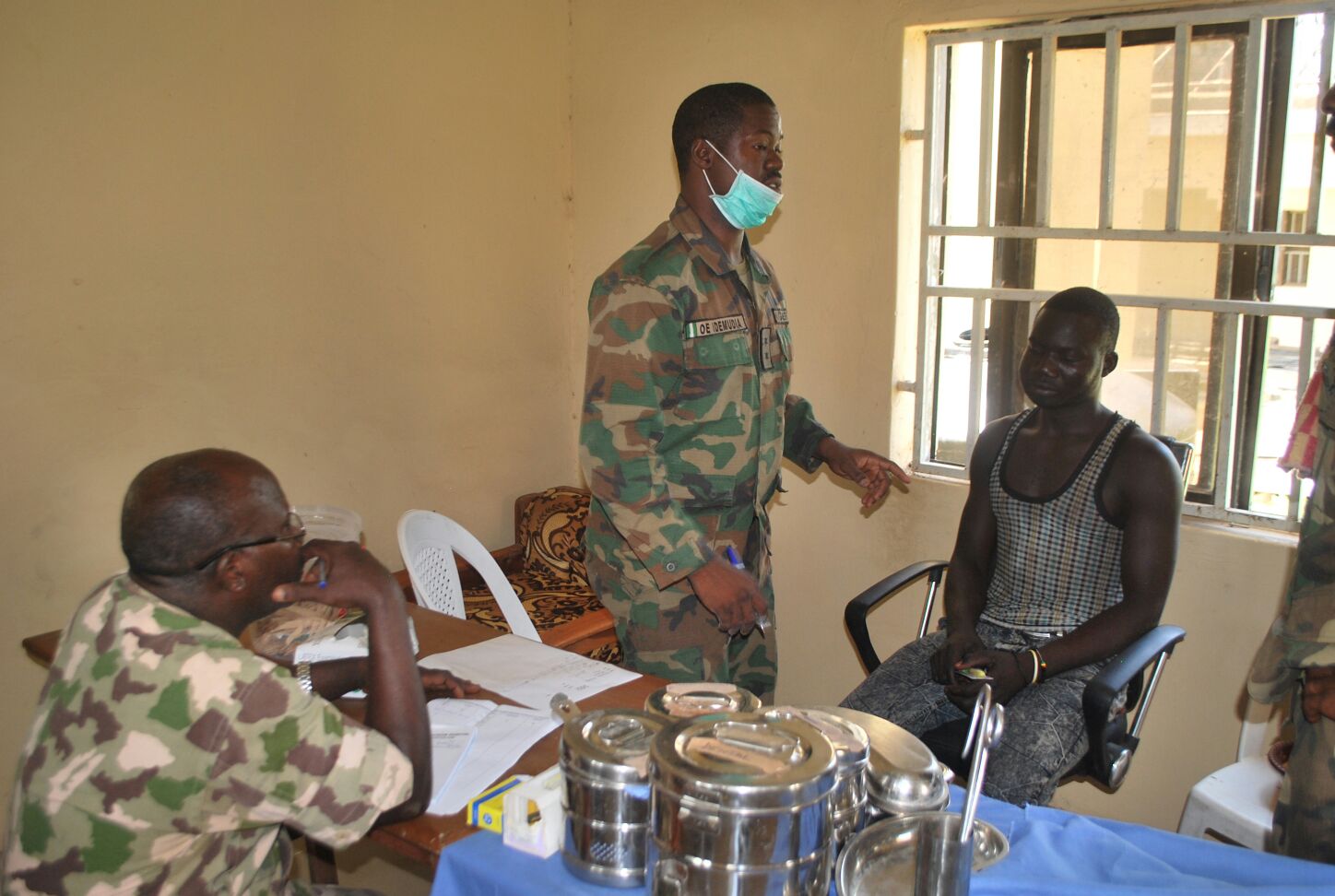
ALL the soldiers who aired their complaints also had words of appreciation for Ikechukwu Okeke, a brigadier-general and director of the 44 Hospital. They all hailed his transfer from the 7 Division Hospital to the 44 Hospital, saying it had given hope to many soldiers who had been deprived of “minor” needs.
“About 50 to 100 soldiers got hearing aids after the arrival of Brigadier-General Okeke,” one soldier says.
“When former director was here, they were discharged without receiving the aids. For how long will soldiers be lacking something as basic as hearing aids? The hearing aids cost just about N180,000 to N200, 000.
“Mr. Man, that is not too much for soldiers who lost their hearing as a result of blasts. If Maiduguri is not calm, nobody will stay in Kaduna here. Thousands of soldiers have sacrificed their lives.”
There are similar words of encouragement for a certain Dr. Ken who is “in charge of all orthopaedic cases at this hospital”, but also calls for reinforcement, to ease the burden on him.
“It’s too much work for one doctor to handle the scores of orthopaedic injuries referred to this hospital,” adds the soldier. “What does it cost the army to employ more experienced doctors to join him?”
No help for psychologically-traumatised soldiers
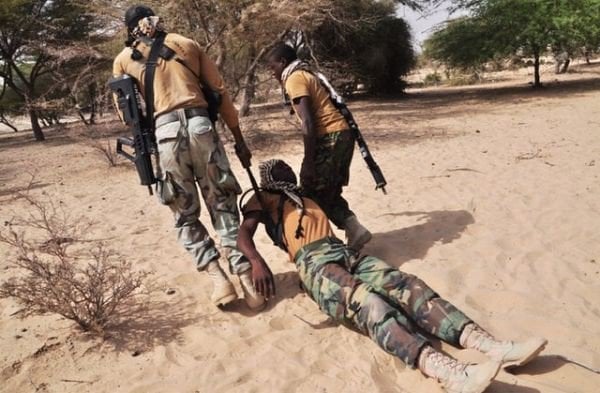
For the nature of operations in the north-east, which often require soldiers to spend several weeks in the bush, soldiers are often in need of regeneration that transcends the physical realm. Two incidents in Maiduguri on May 9 proved that soldiers are in need of psychological management far more than the authorities think.
At about 2pm on the day, a soldier sauntered into the Soldiers’ Club inside the Maimalari Barracks, failing to maintain any form of coherence in gait, speech and looks. He wasn’t drunk at the time, but when he spoke it was though he blended English with Hausa. For the two hours he spent at the club, he struggled to string two clear sentences together back-to-back.
Much later in the evening, around a quarter past six, a Hilux van bearing some AFSF members turned in an injured soldier to the 7 Division Hospital. As the hospital ambulance met up with the van to receive the victim, someone mentioned that he had been shot in both legs by Boko Haram, in Sambisa.
All the AFSF members went into the hospital premises to witness the handover of the injured to the hospital, save one — a gracefully tall, remarkably dark fellow who pranced up and down one minute and then sat alone quietly the next. It was a strange sight to behold, watching him swing between fits of animation and stillness just in a matter of seconds. In his animated mood, he did act like a Muhammed Ali preparing for ‘Rumble in the Jungle’ against George Foreman, or, when he chose to run around, like a Chioma Ajunwa training ahead of the Atlanta 1996 Olympics. When he sat still, he wore the aura of a devastated mourner, someone whose losses were far too weighty for words.
When the soldier’s actions were explained to another soldier the following day, he was unmistakeable in his analysis: “Look, those are the signs of a psychologically-traumatised soldier.
“That is a soldier who has seen lots of tragedy in the bush, who has lost his colleagues to blasts and mines, who has run into decomposing bodies of his friends that were not retrieved by the army, whose mental store house is filled with surreal images.
“Take a good look at me, I wasn’t drinking until I started going to the bush. But when five of us are in a group and in a second all four others are gone, why won’t I come here to drink my sorrows away?”
One week later, in Kaduna, another soldier re-echoes those words. “I left my parents pure; clean. All these things you see me do, I learnt them inside the bush.
“In fact, I was blessed before I left my parents; they prayed for me. Na inside this army I learn all these things.”
Strained love lives and ‘scattered’ marriages
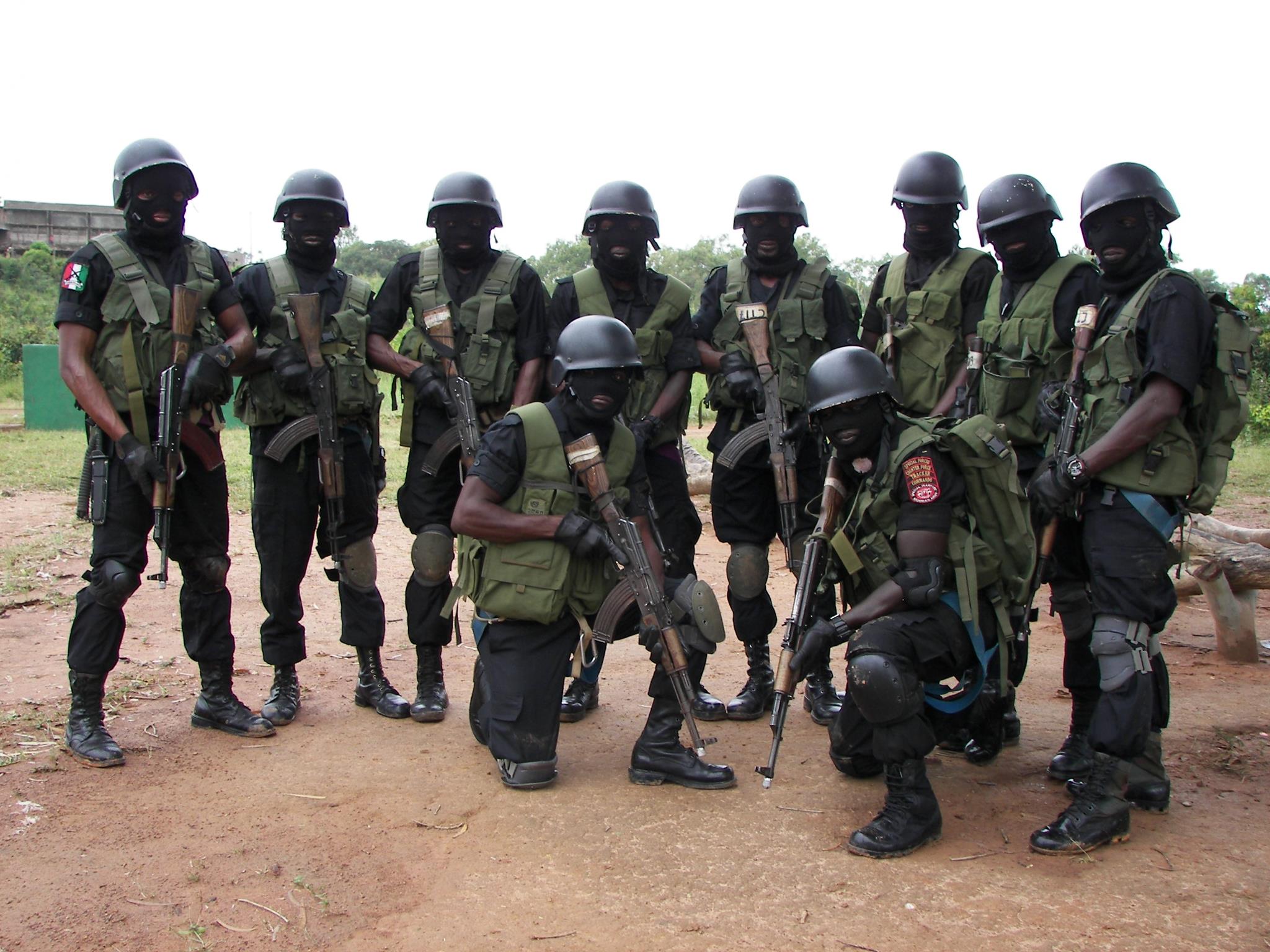
A major complaint among the soldiers was failure of the army to fulfil its promise of rotating soldiers posted to the north-east. In addition to subjecting soldiers to psychological trauma (caused by several consecutive months in the forest “without tasting the town”), the practice is also straining their love lives and “scattering” their families.
“I can count how many families have scattered; both mother and daughter impregnated at the barracks while the father is here fighting Boko Haram,” a soldier who was in Kareto during April’s high-casualty attack by Boko Haram, says.
“But before — during Minimah’s time — soldiers were rotated. You were here for six months and you left. But these days, the army can drop somebody here for complete four years just because the boss can fly a jet to anywhere he likes. In fact, because of two much familiarity, some soldiers here have turned to Boko Haram members, selling army equipment.”
A 35-year-old civilian, who has spent his entire life in and around the Maimalari Barracks because his father was a soldier, speaks in similar vein: “I know some soldiers here, four GOCs have come and gone, and they’re still here because they’re ordinary soldiers.
“In this Maimalari, when you come for night parties, you will be dancing. You don’t know that all those people you’re dancing with are soldiers’ wives. I went to one party, I saw a fine woman and I was dancing with her. I was trying to hold her and she was saying no, no.
“When the dance was over, someone started pointing the women at the parties, saying, ‘You see this one, her husband is in Mali; this one, her husband is elsewhere.’ After that party sef, na only God know where those women go sleep.”
The soldier from Kareto cuts in, recalling the experience of a soldier whose wife was put in the family way while he was away on the battlefield.
“One young soldier slept at his colleague’s place and saw the neighbour’s wife whose husband is in the Niger-Delta. Today, he buys bread and says ‘Tolu take.’ She smiles, collects it and thanks him.
“Another day, he buys yoghurt. Before you knew it, this guy impregnated the woman. When the soldier came back and saw a pregnant wife, he had to end the marriage.
“So, you marry now and you are sent on operation to Maiduguri or elsewhere. Before you return, the family you were working for has already scattered. Now, tell me, what’s your gain? Will you start from square one again? Is this what you planned with God? Those of us who are here and our family is still intact, it’s by God’s grace.”
Patience… but for how long?
To sum up the grievances of the injured soldiers, Joel Hamidu, whose limbs were chopped off by explosives in August 2015 but is still awaiting prosthesis, says the plan is to “calm down” and patiently wait for what the army and the government have to offer.
“They said all these while that they were waiting for Buhari to sign the budget, so I am trying to exercise patience and listen to the lyrics they are playing to me,” he says.
“We are all calming down because we don’t want to compromise discipline in the army. We are all patient to see if the army has anything to offer us, but as you can see, for how many years will it take the government of the day to make provision for us? That is the irony.”
Editor’s Note: All the hospital photos featured in this story are stills from videos recorded undercover. All the soldiers featured in this story DID NOT grant an interview. The videos were only recorded UNDERCOVER to reveal the true state of soldiers’ welfare at the hospitals.
This is the second in the series. Read the first here, the second here, and the third here.
This project was produced with support from the International Centre for Investigative reporting (ICIR)
Twitter: @fisayosoyombo
NEXT: The intriguing love story of Joy Johnson, whose boyfriend joined the army and — after an attack by Boko Haram — suffered amputation of his left leg. Joy went ahead to marry him even though the tragedy had cruelly altered their love life.
Add a comment




